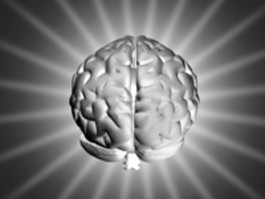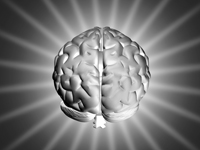Scientists think they’ve found the secret to our good and bad habits.

 Scientists think they’ve found the secret to our good and bad habits. It has to do with the pleasure-sensing chemical dopamine, coursing up and down our body’s internal highways. According to an AP report this week, dopamine “conditions the brain to want that reward again and again—reinforcing the connection each time—especially when it gets the right cue from your environment” (South Bend Tribune 1-4-11). For example, you enjoy munching on chips (no doubt a healthful kind). You usually do it before supper, while you’re watching the evening news. (I know the routine well!) Dopamine links your desire for those chips to the environmental stimulus of watching the evening news, and pretty soon your brain’s dopamine-rich striatum region links both activities to a desired reward—pleasurable taste and relaxation. Turn on the news, get hungry for chips—munch some chips, turn on the television. The more repetitions, the stronger the dopamine tie that binds.
Scientists think they’ve found the secret to our good and bad habits. It has to do with the pleasure-sensing chemical dopamine, coursing up and down our body’s internal highways. According to an AP report this week, dopamine “conditions the brain to want that reward again and again—reinforcing the connection each time—especially when it gets the right cue from your environment” (South Bend Tribune 1-4-11). For example, you enjoy munching on chips (no doubt a healthful kind). You usually do it before supper, while you’re watching the evening news. (I know the routine well!) Dopamine links your desire for those chips to the environmental stimulus of watching the evening news, and pretty soon your brain’s dopamine-rich striatum region links both activities to a desired reward—pleasurable taste and relaxation. Turn on the news, get hungry for chips—munch some chips, turn on the television. The more repetitions, the stronger the dopamine tie that binds.
“‘Why are bad habits stronger? You’re fighting against the power of an immediate reward,’ says Dr. Nora Volkow, director of the National Institute on Drug Abuse and an authority on the brain’s pleasure pathway. It’s the fudge vs. broccoli choice: Chocolate’s yum factor tends to beat out the knowledge that sticking with veggies brings an eventual reward of lost pounds. ‘We all as creatures are hard-wired that way, to give greater value to an immediate reward as opposed to something that’s delayed,’ Volkow says” (ibid).
And the problem is that we tend to overestimate our ability to resist temptations around us, “thus undermining attempts to shed bad habits, says experimental psychologist Loran Nordgren, an assistant professor at Northwestern University’s Kellogg School of Management. ‘People have this self-control hubris, this belief they can handle more than they can,’ says Nordgren, who studies the tug-of-war between willpower and temptation” (ibid).
All of which means that establishing good habits and ridding bad habits requires more than simply composing another list of New Year’s resolutions. “Been there—done that.” Based on this AP report of their studies, here are five new routines researchers recommend adding to your good-habits strategy:
“Repeat, repeat, repeat the new behavior—the same routine at the same time of day.” Pick a time of day, select an activity, and stick to it. Personal prayer and Bible study first thing the morning. Walking, jogging, working out at the same time each day. The striatum will eventually recognize the new habit and will “reward” you for faithfulness to the new routine, or “disturb” you when you neglect it.
“Exercise itself raises dopamine levels,” which means adding this good habit to your routine will raise your feel-good sense of vitality.
“Reward yourself with something you really desire.” A new book or a CD or an outfit you’ve been needing reinforces your own intentions to stick to good habit routine.
“Stress can reactivate the bad-habit circuitry.” So “chilling out” isn’t such a bad idea when your circuits are on overload.
“Cut out the rituals linked to your bad habits.” As the report puts it, “No eating in front of the TV, ever.”
But there’s one more strategy science can never measure. It’s your faith-factor. Repeat this dynamite promise from God daily and your striatum will quickly get the message:
“I can do all things through Christ who strengthens me” (Philippians 4:13). Too simple? Hardly! Begin each day in quiet conversation with Him through a story-a-day reading through the Gospels, and you will unite yourself with Christ himself, as you discover for yourself his omnipotent friendship—a power even stronger than dopamine.